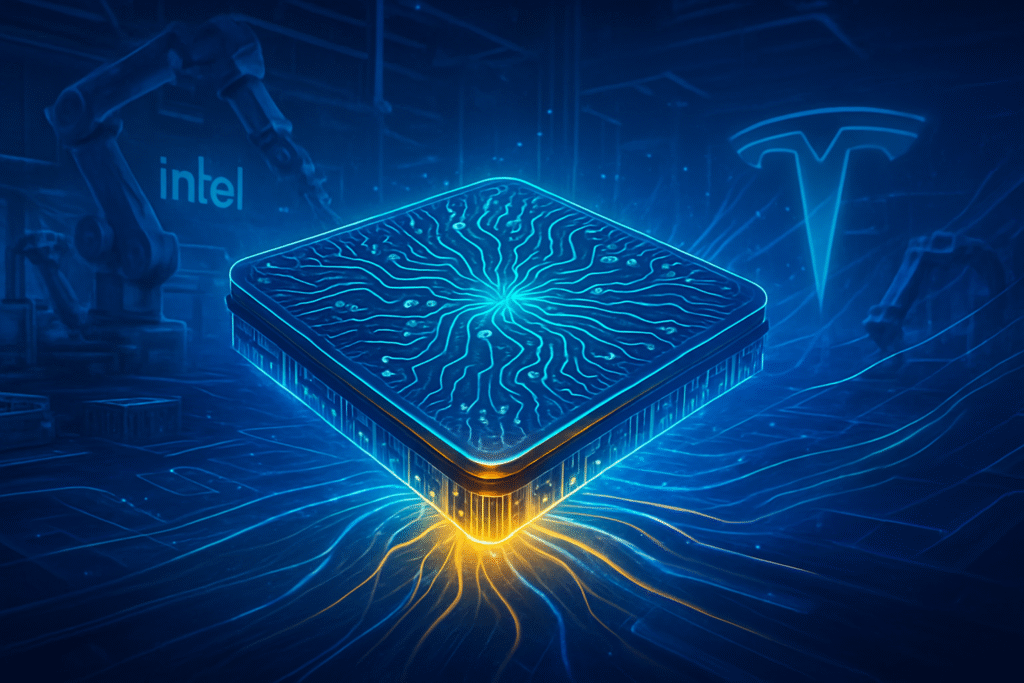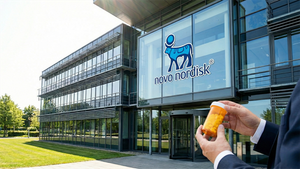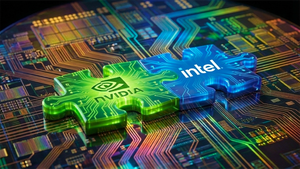
In a move that could significantly reshape the artificial intelligence (AI) chip manufacturing landscape, Elon Musk has publicly indicated that Tesla (NASDAQ: TSLA) is exploring a potential partnership with Intel (NASDAQ: INTC) for the production of its next-generation AI chips. Speaking at Tesla's annual meeting, Musk revealed that discussions with Intel would be "worthwhile," citing concerns that current suppliers, Taiwan Semiconductor Manufacturing Company (NYSE: TSM) and Samsung (KRX: 005930), might be unable to meet the burgeoning demand for AI chips critical to Tesla's ambitious autonomous driving and robotics initiatives.
This prospective collaboration signals a strategic pivot for Tesla, aiming to secure a robust and scalable supply chain for its custom AI hardware. For Intel, a partnership with a high-volume innovator like Tesla could provide a substantial boost to its foundry services, reinforcing its position as a leading domestic chip manufacturer. The announcement has sent ripples through the tech industry, highlighting the intense competition and strategic maneuvers underway to dominate the future of AI hardware.
Tesla's AI Ambitions and Intel's Foundry Future
The potential partnership is rooted in Tesla's aggressive roadmap for its custom AI chips. The company is actively developing its fifth-generation AI chip, internally dubbed "AI5," designed to power its advanced autonomous driving systems. Initial, limited production of the AI5 is projected for 2026, with high-volume manufacturing targeted for 2027. Looking further ahead, Tesla also plans for an "AI6" chip by mid-2028, aiming to double the performance of its predecessor. Musk has emphasized the cost-effectiveness and power efficiency of Tesla's custom AI chips, estimating they could consume approximately one-third the power of Nvidia's (NASDAQ: NVDA) Blackwell chip at only 10% of the manufacturing cost.
To overcome potential supply shortages, Musk even suggested the possibility of constructing a "gigantic chip fab," or "terafab," with an initial output target of 100,000 wafer starts per month, eventually scaling to 1 million. This audacious vision underscores the scale of Tesla's AI ambitions and its determination to control its hardware destiny. For Intel, this represents a significant opportunity. The company has been aggressively expanding its foundry services, actively seeking external customers for its advanced manufacturing technology. With substantial investment and government backing, including a 10% stake from the U.S. government to bolster domestic chipmaking capacity, Intel is well-positioned to become a key player in contract chip manufacturing.
This potential collaboration differs significantly from traditional client-supplier relationships. Tesla's deep expertise in AI software and hardware architecture, combined with Intel's advanced manufacturing capabilities, could lead to highly optimized chip designs and production processes. The synergy could accelerate the development of specialized AI silicon, potentially setting new benchmarks for performance, power efficiency, and cost in the autonomous driving and robotics sectors. Initial reactions from the AI research community suggest that such a partnership could foster innovation in custom silicon design, pushing the boundaries of what's possible for edge AI applications.
Reshaping the AI Chip Competitive Landscape
A potential alliance between Intel (NASDAQ: INTC) and Tesla (NASDAQ: TSLA) carries significant competitive implications for major AI labs and tech companies. For Intel, securing a high-profile customer like Tesla would be a monumental win for its foundry business, Intel Foundry Services (IFS). It would validate Intel's significant investments in advanced process technology and its strategy to become a leading contract chip manufacturer, directly challenging Taiwan Semiconductor Manufacturing Company (NYSE: TSM) and Samsung (KRX: 005930) in the high-performance computing and AI segments. This partnership could provide Intel with the volume and revenue needed to accelerate its technology roadmap and regain market share in the cutting-edge chip production arena.
For Tesla, aligning with Intel could significantly de-risk its AI chip supply chain, reducing its reliance on a limited number of overseas foundries. This strategic move would ensure a more stable and potentially geographically diversified production base for its critical AI hardware, which is essential for scaling its autonomous driving fleet and robotics ventures. By leveraging Intel's manufacturing prowess, Tesla could achieve its ambitious production targets for AI5 and AI6 chips, maintaining its competitive edge in AI-driven innovation.
The competitive landscape for AI chip manufacturing is already intense, with Nvidia (NASDAQ: NVDA) dominating the high-end GPU market and numerous startups developing specialized AI accelerators. A Tesla-Intel partnership could intensify this competition, particularly in the automotive and edge AI sectors. It could prompt other automakers and tech giants to reconsider their own AI chip strategies, potentially leading to more in-house chip development or new foundry partnerships. This development could disrupt existing market dynamics, offering new avenues for chip design and production, and fostering an environment where custom silicon becomes even more prevalent for specialized AI workloads.
Broader Implications for the AI Ecosystem
The potential Intel (NASDAQ: INTC) and Tesla (NASDAQ: TSLA) partnership fits squarely into the broader trend of vertical integration and specialization within the AI landscape. As AI models grow in complexity and demand for computational power skyrockets, companies are increasingly seeking to optimize their hardware for specific AI workloads. Tesla's pursuit of custom AI chips and a dedicated manufacturing partner underscores the critical need for tailored silicon that can deliver superior performance and efficiency compared to general-purpose processors. This move reflects a wider industry shift where leading AI innovators are taking greater control over their technology stack, from algorithms to silicon.
The impacts of such a collaboration could extend beyond just chip manufacturing. It could accelerate advancements in AI hardware design, particularly in areas like power efficiency, real-time processing, and robust inference capabilities crucial for autonomous systems. By having a closer feedback loop between chip design (Tesla) and manufacturing (Intel), the partnership could drive innovations that address the unique challenges of deploying AI at the edge in safety-critical applications. Potential concerns, however, might include the complexity of integrating two distinct corporate cultures and technological approaches, as well as the significant capital expenditure required to scale such a venture.
Comparisons to previous AI milestones reveal a consistent pattern: breakthroughs in AI often coincide with advancements in underlying hardware. Just as the development of powerful GPUs fueled the deep learning revolution, a dedicated focus on highly optimized AI silicon, potentially enabled by partnerships like this, could unlock the next wave of AI capabilities. This development could pave the way for more sophisticated autonomous systems, more efficient AI data centers, and a broader adoption of AI in diverse industries, marking another significant step in the evolution of artificial intelligence.
The Road Ahead: Future Developments and Challenges
The prospective partnership between Intel (NASDAQ: INTC) and Tesla (NASDAQ: TSLA) heralds several expected near-term and long-term developments in the AI hardware space. In the near term, we can anticipate intensified discussions and potentially formal agreements outlining the scope and scale of the collaboration. This would likely involve joint engineering efforts to optimize Tesla's AI chip designs for Intel's manufacturing processes, aiming for the projected 2026 initial production of the AI5 chip. The focus will be on achieving high yields and cost-effectiveness while meeting Tesla's stringent performance and power efficiency requirements.
Longer term, if successful, this partnership could lead to a deeper integration, potentially extending to the development of future generations of AI chips (like the AI6) and even co-investment in manufacturing capabilities, such as the "terafab" envisioned by Elon Musk. Potential applications and use cases on the horizon are vast, ranging from powering more advanced autonomous vehicles and humanoid robots to enabling new AI-driven solutions in energy management and smart manufacturing, areas where Tesla is also a significant player. The collaboration could establish a new paradigm for specialized AI silicon development, influencing how other industries approach their custom hardware needs.
However, several challenges need to be addressed. These include navigating the complexities of advanced chip manufacturing, ensuring intellectual property protection, and managing the significant financial and operational investments required. Scaling production to meet Tesla's ambitious targets will be a formidable task, demanding seamless coordination and technological innovation from both companies. Experts predict that if this partnership materializes and succeeds, it could set a precedent for how leading-edge AI companies secure their hardware future, further decentralizing chip production and fostering greater specialization in the global semiconductor industry.
A New Chapter in AI Hardware
The potential partnership between Intel (NASDAQ: INTC) and Tesla (NASDAQ: TSLA) represents a pivotal moment in the ongoing evolution of artificial intelligence hardware. Key takeaways include Tesla's strategic imperative to secure a robust and scalable supply chain for its custom AI chips, driven by the explosive demand for autonomous driving and robotics. For Intel, this collaboration offers a significant opportunity to validate and expand its foundry services, challenging established players and reinforcing its position in domestic chip manufacturing. The synergy between Tesla's innovative AI chip design and Intel's advanced production capabilities could accelerate technological advancements, leading to more efficient and powerful AI solutions.
This development's significance in AI history cannot be overstated. It underscores the increasing trend of vertical integration in AI, where companies seek to optimize every layer of their technology stack. The move is a testament to the critical role that specialized hardware plays in unlocking the full potential of AI, moving beyond general-purpose computing towards highly tailored solutions. If successful, this partnership could not only solidify Tesla's leadership in autonomous technology but also propel Intel back to the forefront of cutting-edge semiconductor manufacturing.
In the coming weeks and months, the tech world will be watching closely for further announcements regarding this potential alliance. Key indicators to watch for include formal agreements, details on technological collaboration, and any updates on the projected timelines for AI chip production. The outcome of these discussions could redefine competitive dynamics in the AI chip market, influencing investment strategies and technological roadmaps across the entire artificial intelligence ecosystem.
This content is intended for informational purposes only and represents analysis of current AI developments.
TokenRing AI delivers enterprise-grade solutions for multi-agent AI workflow orchestration, AI-powered development tools, and seamless remote collaboration platforms.
For more information, visit https://www.tokenring.ai/.





